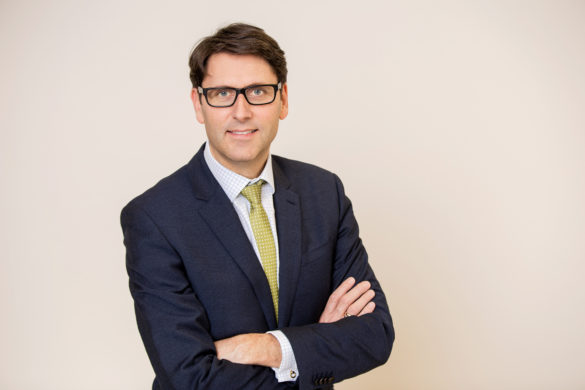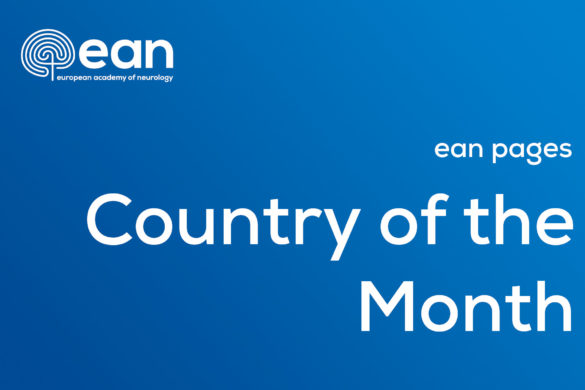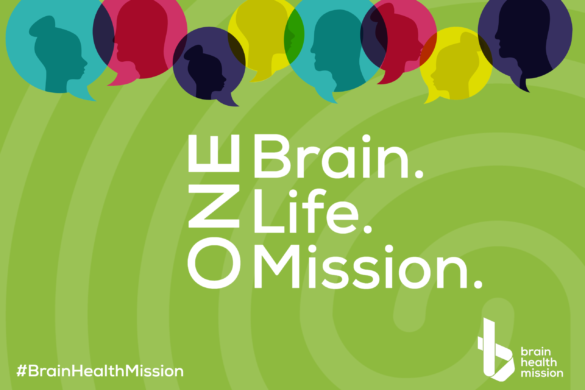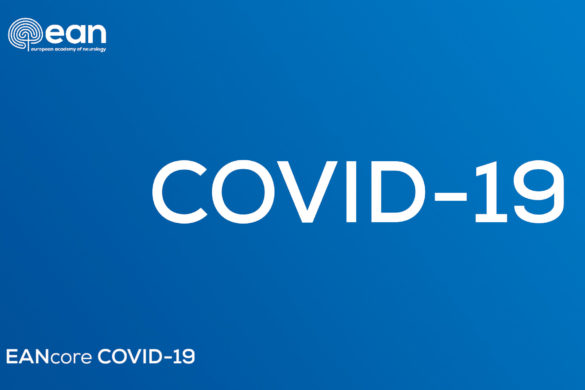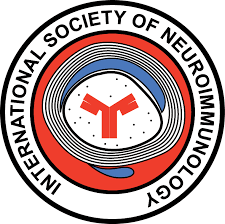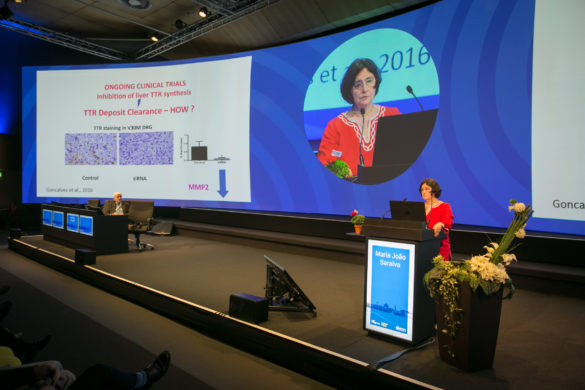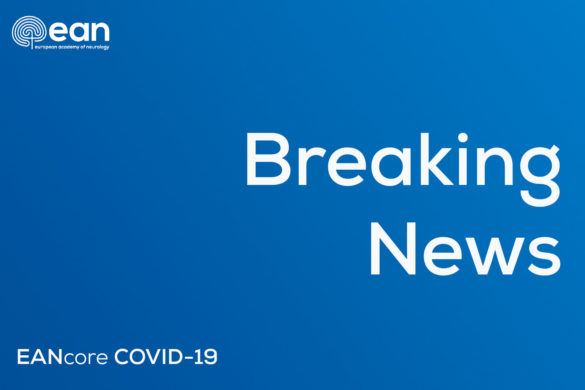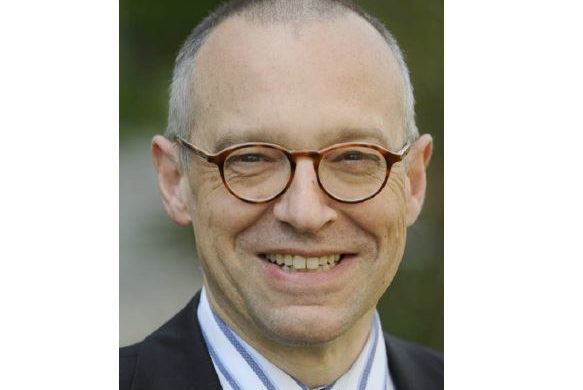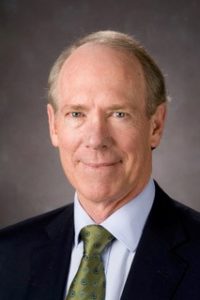
William Carroll,
President of the World Federation of Neurology (WFN)
David B Vodušek (DBV): In light of your long-standing experience in the world of neurology world-wide, what would your “diagnosis” be concerning its “state of art”?
William Carroll (WC): What a good question to begin with. I would say my “diagnosis” is healthy and its prognosis is one of cautious optimism mixed with exciting opportunities and challenges.
There is an enormous explosion of neurological information occurring nowadays. From disease mechanisms, treatments, investigations, regional and global epidemiology we have never been so fortunate and I see no reason for it to slow. Patients, neuroclinicians and neuroscientists today have access to a level of understanding and ability to treat that has changed dramatically in the last two to three decades. The opportunities for all especially for neuroscientist and clinician have never been so great. Yet their distribution globally and access to them are massively unequal which casts a shadow over what should be a triumph for knowledge-based treatment improvements.
For a variety of reasons but mainly economic, political and conflict, many areas of the world are unable to take advantage of these improvements. In parallel with this inequality there is a rising need for large scale action to counter the effects of the increasing burden of neurological disease. Dementia other neurodegenerative disease, stroke and the effects of poor nutrition during development means that there will be worsening rates of neurological disability in areas of the world least able to afford them. This in turn will present an intolerable burden on the resources of these less well-off regions. The potential economic burden is immense.
From the perspective of the WFN and its affiliated organisations there is an urgent need to have improved neurological expertise in those areas where it is limited or absent as well as to advocate strongly with global regional and national bodies to support actions to improve the situation. Unfortunately, this is often the most difficult where the needs are greatest. Nevertheless, the WFN in partnership with others must continue act to support, advocate and educate to avert the position from worsening. There is now a recognition of the danger and as a consequence a mobilization of both governmental and nongovernmental resources to meet the threat. It requires continued attention and action.
DBV: Can you inform the EAN readers on the priorities that you and WFN will set for your presidency?
WC: The readers of EANpages might know that the mission of the WFN is to foster quality neurology and brain health worldwide. The WFN is positioned very well to be involved at this level. First, it has 120 member societies and seeks to encourage the number to increase. Second, it occupies a pivotal position of leadership based on its global membership and its name. Third, it counts among its six regionally affiliated organisations the European Academy of Neurology, the American Academy of Neurology, the Pan American Federation of Neurological Societies, the African Academy of Neurology, the Pan Arab Union of Neurological Societies and the Asian and Oceanian Association of Neurology.
In addressing the major aspects of global neurology mentioned in (1) above and the WFN mission, the principle priorities are to recognise the challenges, shape the opportunities to face them and, most importantly, to encourage the collaborative effort between all levels of neurological organisations to overcome them. This will mean the establishment of meaningful alliances for advocacy at national, regional and global levels as well as harnessing the goodwill of the neurological community to engage in direct educational action.
The key to this, in my opinion, is to identify the most urgent and pivotal of these, to plan the approach and set in motion actions that can be measured.
In parallel with these goals I would like to see more engagement of younger people of the neurological and neuroscience fraternity in the WFN and its related organisations. This will require a two-way educational process – how younger people can contribute and how older persons can provide the perspective and opportunity for them.
DBV: The EAN (and the EFNS and ENS before) and the WFN have a longstanding history of strong cooperation that we hope will be taken ahead under your presidency. Can you illustrate how you see the future of this cooperation?
You are correct that the EAN and the WFN share not only a strong history of cooperation but also the same view of the needs and problems.
I see it as essential that the key organisations involved in global neurological issues at whatever level are prepared to plan for the commitments required to reduce the impact on the burden of the provision of neurological care. This will require a degree of common appreciation of the problems in different areas of the world and the development of programmes to begin to deal with them. At present we have a number of initiatives from many well-meaning organisations but which might well benefit by more integrated planning.
DBV: On a more personal note: Senior leaders in neurology are also a role model for the younger generations – can you tell us why did you choose neurology and when and why did you enter the neuro-political arena?
WC: Role models are only such if the reasons for roles are able to enthuse and energise those who may follow. Certainly in my case, I was influenced by mentors and senior researchers and clinicians and eventually neuropoliticians for the want of a better word.
I believe that physicians universally and neurologists in particular have an intrinsic sense of altruism and strong attraction to history. They understand innately what is required to contribute to the benefit of others less fortunate. They want to make a difference for people with neurological maladies and for those at risk of the same. So often it is this calling which helps the early directional influence. Thus the obvious first step in many medical education systems is to enter a university based medical school. At some time in this process a student or young graduate will know to which particular field they are being drawn. In my case it was to the neurological world.
Reading of nerve impulse transmission, the beauty of the node of Ranvier and the self-generating action potential, realising the enormous voids existing in neurological care in the 1970s and 1980s and the likely explosion of knowledge that would occur with the advent of the CT scan imaging and genetics were all powerful influences for me. From then I was committed. It was exhilarating but by mid-career it was clear that the benefits of the advances were inequitably distributed. At my first WCN in Vancouver in 1993 I was introduced to the notion of the need for educational activity beyond national organisations. Many countries did not have a medical let alone a neurological infrastructure that those attending that WCN took for granted. Once the Australian Association of Neurologists, as it was then, decided we should bid again for the WCN in 2005 my perspective in this area was greatly increased.
I have been really fortunate to have been involved with the WFN in many roles since then and also have been able to participate in in a number of multinational and global efforts relating to demyelinating diseases. These include not only multiple sclerosis in Caucasians but also the separation of mimicking antibody mediated diseases from multiple sclerosis in non-Caucasian populations especially in the Asia Pacific region. At the same time the rising burden of non-communicable diseases (NCDs) has become evident. The WFN has joined the WHO in addressing these matters and attempting to ensure that neurological NCDs such as neurodegenerative diseases, stroke and immune mediated inflammation are included.
Throughout, I have been rewarded by the ability to meet, discuss and plan with likeminded neurologists. It is truly an honour to have known them and to be able to join with them in encouraging the development of the next generation of neurologists. While I am sure my account here is no different from the experience of your readers and those elsewhere in the world we do need emphasise that the opportunities are here today and encourage them to be recognised and grasped.
DBV: Mr. President, I thank you for the truly informative answers, and I wish you and WFN further success in achieving your goals.
by David B. Vodušek, Chair, EAN Communication Committee




